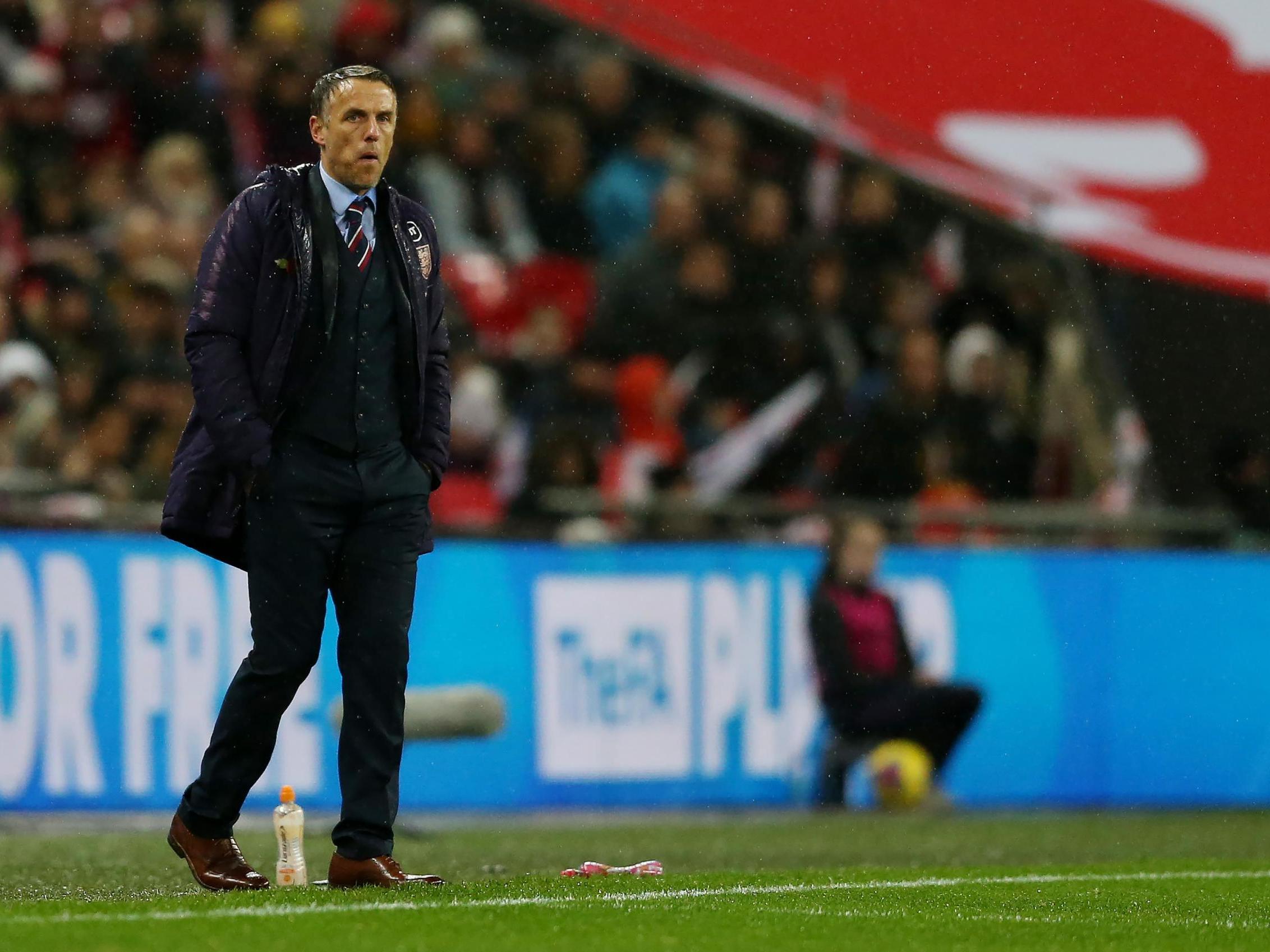England women’s team close to naming new coach ahead of Phil Neville’s departure
Announcement is expected this summer, though Neville’s successor’s start date is unclear

Your support helps us to tell the story
This election is still a dead heat, according to most polls. In a fight with such wafer-thin margins, we need reporters on the ground talking to the people Trump and Harris are courting. Your support allows us to keep sending journalists to the story.
The Independent is trusted by 27 million Americans from across the entire political spectrum every month. Unlike many other quality news outlets, we choose not to lock you out of our reporting and analysis with paywalls. But quality journalism must still be paid for.
Help us keep bring these critical stories to light. Your support makes all the difference.
The next coach of the England women’s football team is due to be named this summer, although their start date is unclear as things stand, with Phil Neville still under contract for another year.
A job advert was posted by the English Football Association (FA) last month after Neville decided he did not want to extend his reign to cover the European Championship, which was postponed by a year until 2022 due to the calendar disruption caused by the coronavirus pandemic.
“Applications are due in by the end of this month, we’ve had very, very good interest from significantly experienced coaches,” Sue Campbell, the FA director of women’s football, said on Thursday.
“I’m very optimistic that we’ll move to a new appointment this summer. When that person starts will depend on them to a large degree and also on discussions with Phil.
“So right now, Phil is doing the day job, very, very much day in and day out, has been in touch with his players regularly.”
It has yet to be determined whether Neville or his successor will still coach Great Britain at the Tokyo Olympics, which were rescheduled to begin in July 2021.
Campbell said that won’t be decided “until I know who the new coach is and when they wish to start, and whether indeed they wish to take on a GB team, because they may just want to focus on England”.
England, who reached the Women’s World Cup semi-finals last year, have not played since early March due to the shutdown of sports.
The England job was Neville’s first in senior management and his first in women’s football.
“It was his decision to conclude his contract when he gets to the end of next year,” Campbell said. “The option to extend that contract, I didn’t take it beyond offering it to him. I’d have to have taken it to the board and to other people, but he didn’t want that.

“He was very clear in his mind that he’d come to do a three-year job and that that is what he wanted to do. He was disappointed, as I’m sure we all were, that both the Olympics and Euros got bumped a year.”
The FA said the number of teams in the English women’s game that can play in the leagues has risen in three years from 6,388 to 9,25. A “Gameplan for Growth” strategy has also seen a rise in FA-qualified coaches from 29,401 in 2017 to 34,581.
Campbell credited Neville, a former Manchester United, Everton and England player, with helping to raise the profile of the women’s game further.
“People are now looking from overseas and thinking we’re taking this game very, very serious now,” Campbell said. “So if you’re a coach with similar ambition and desire to come and work alongside great players in an environment which is very supportive, then you’re interested in this role. I’m optimistic we won’t see people dropping away. We’ve got some really outstanding candidates.”
AP
Join our commenting forum
Join thought-provoking conversations, follow other Independent readers and see their replies
Comments